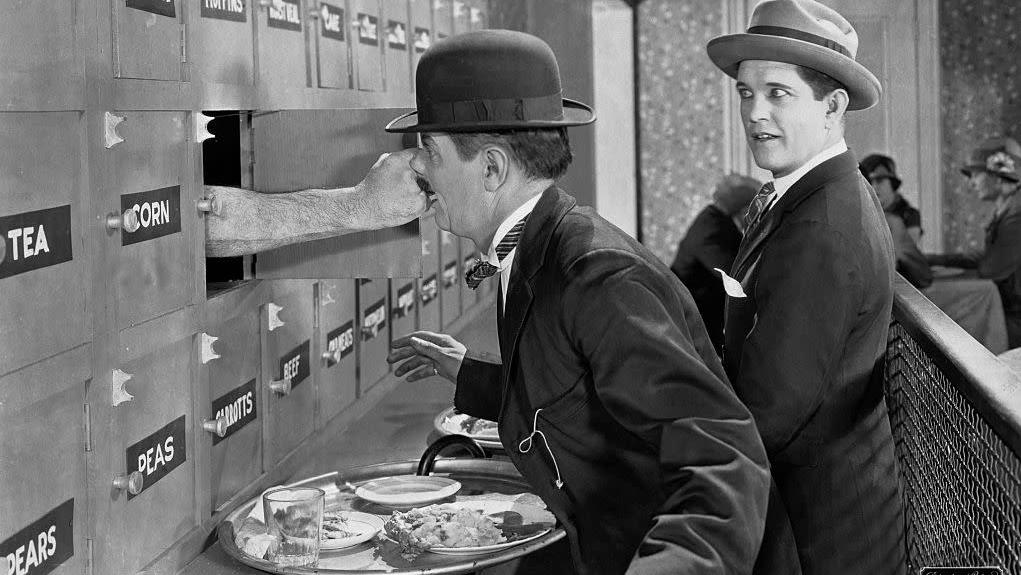Is The Automat The Perfect COVID-Era Restaurant?
Back in the days before fast food, busy urban folks had the Automat. It was essentially a room full of vending machines, except instead of our present-day assortment of chips, Combos, and candy bars, Automat machines contained actual food, prepared and shoved into the machines by actual humans. You would put in your coins, then the little door would unlatch, and you could remove your hamburger or chicken sandwich or slice of pie, nicely arranged on a plate, and then take it to a table to eat.
I've long regretted that the Automat died out long before I was born and that attempts to revive it in the age of fast food and food trucks have been wildly unsuccessful. But now in the age of COVID-19, when many of us are terrified of our fellow humans and want to avoid them as much as possible, the Automat's time may have come again. The original Automat, after all, first began to thrive during the 1919 flu epidemic.
The Brooklyn Dumpling Shop, confusingly located not in Brooklyn but in Manhattan's East Village, is scheduled to open in July. Its owners have promised zero human interaction, and customers will be able to pick up their orders from, yes!, a little door in the wall. (Or, more specifically, a $100,000 automated locker system.)
Only two customers will be allowed in the space at a time, the New York Post reports, and, upon entering, they'll have to pass through a body-temperature scanner. If they fail the test, no dumplings for them! If they pass, they can proceed to one of the two ordering kiosks, where they'll have their choice of more than 30 types of dumplings, including peanut butter and jam and matzo ball soup.
"The kiosks are equipped with heat-sensing screens that can detect fingers and credit cards hovering above them and which don't need to be touched," according to the Post. "Once finished waving their fingers and credit card over them, customers finally come face-to-face with the wall of lockers." Changing-colored lights let customers know when their dumplings are ready. When they scan their phones on a keypad, the locker will open. Like magic!
Just to throw a damper on things, the Post asked Andrew Rigie, executive director of the NYC Hospitality Alliance, if this seemed to be a widespread trend. Rigie said no. But if the past few months have taught us anything, it's impossible to make predictions. Please, let us get one nice thing out of all of this.
